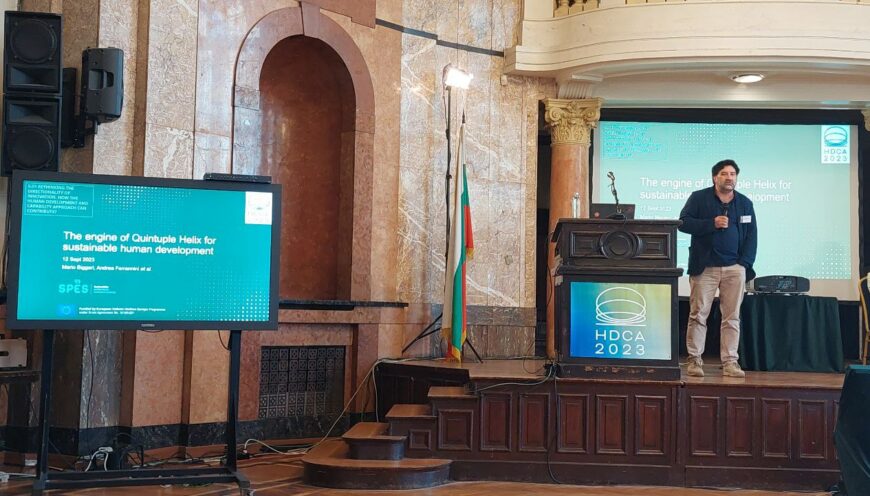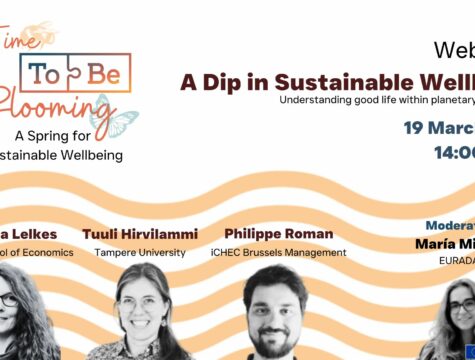The University of Florence, as Lead Partner of the project SPES, participated to the 2023 HDCA Annual Conference in Sofia, Bulgaria, to present the project novel integrated framework that aims to foster the transition towards Sustainable Human Development. In particular, Prof Mario Biggeri and Andrea Ferrannini presented the work that constitutes the theoretical base of the project.
The first presentation by Prof. Mario Biggeri and Heriberto Tapia, called “Human Security in the Anthropocene: A New Base for Action”, introduces how the “human security lens” engages with human development and the capability approach. Together they presented different perspectives of genuine action-oriented human security, and provided valuable insights for policy issues and recommendations in the current context of interlinked threats.
To know more, the paper ” Human Security in the Anthropocene: A New Base for Action” by Biggeri and Tapia is available here.
The second presentation by Prof. Mario Biggeri and Andrea Ferrannini, called “Rethinking the Directionality of Innovation. How the Human Development and Capability Approach Can Contribute”, instead focused on SPES’ vision of sustainability transition: establishing a dialogue among three paradigms – the 2030 Agenda, the Sustainable Human Development and the Quintuple Helix Model – and reconcile them in order to capture the directionality and the core of the process of change towards sustainability transition. They argued that the motivation of diverse actors toward a common cause and vision is triggered by the expansion from an egocentric value system to one that includes care for others and the environment for integral well-being of all.
More info on the Quintuple Helix model and SPES novel integrated framework are available here.
2023 HDCA Annual Conference
Vulnerability, human development and cooperative re-building in turbulent times’
We are living in turbulent times, times characterized by dynamic, deepening inequalities both between and within societies, as well as increased levels of insecurity and vulnerability. The consequences are evident in human and non-human life posing multilayered obstacles to human development. Between 2020 and 2021, the human development index contracted for all countries.
Vulnerability is a feature of humanity. Martha Nussbaum notes the need for societies to acknowledge their citizens are needy and vulnerable. If vulnerability is an enduring aspect of the human condition, it needs to be addressed by individuals, collectives and institutions. The recent Covid-19 crisis demonstrated that human vulnerability is universal. But it is also shaped and experienced differently depending on economic, political and social environments.
Recent manifestations of human vulnerability raise questions about how the capability approach and the human development paradigm can help, in the contemporary context, in thinking through some of the questions of changing capability sets across social divisions of race, class, gender, age, disability and nationality. Applying the capability approach can encourage studying who benefits and who loses from recent societal developments. How is development as freedom as outlined by Amartya Sen, possible under these circumstances? Are there capabilities that can promote prosperity, hope and re-imagined futures in our contemporary world?




